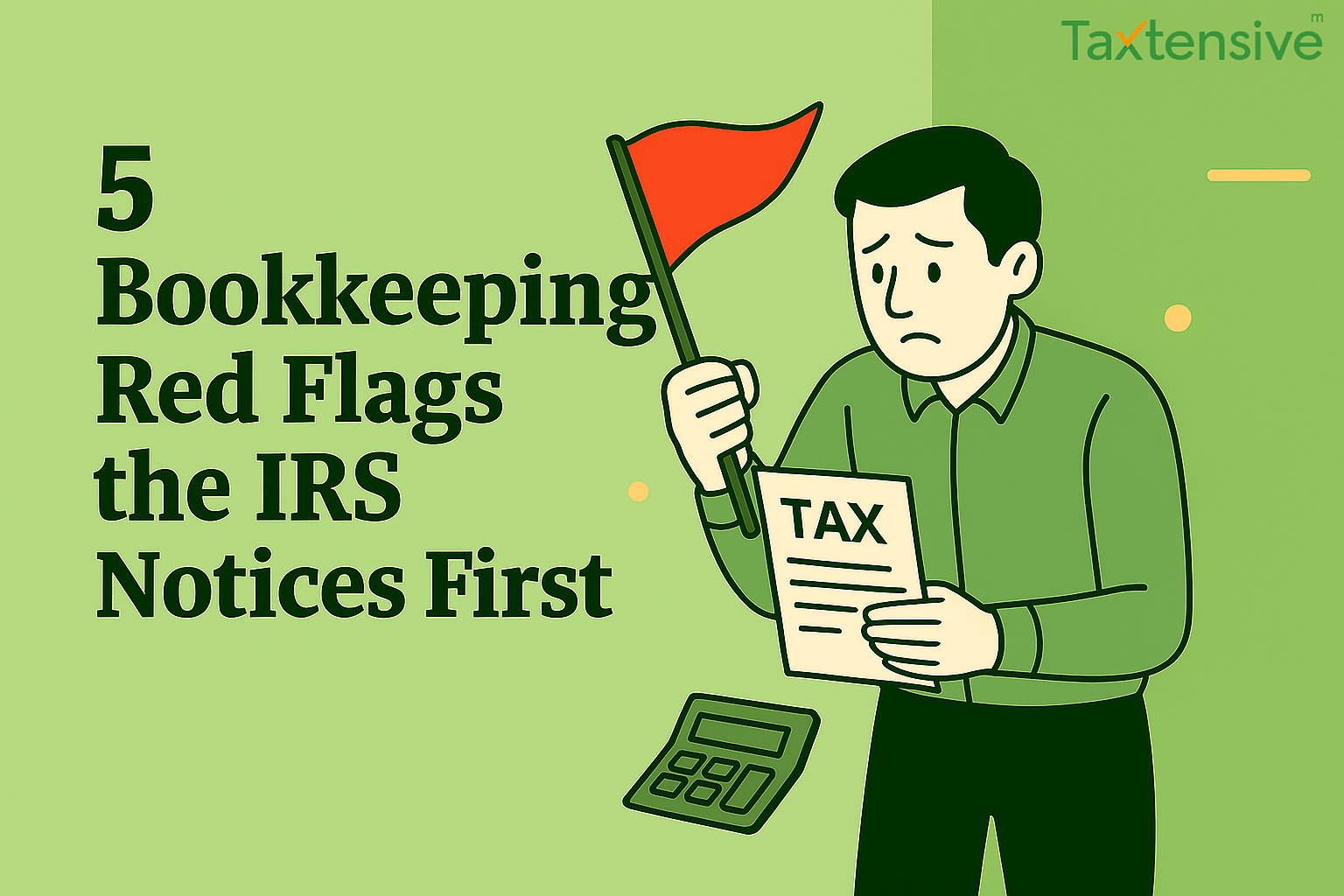5 Bookkeeping Red Flags the IRS Notices First

As a solopreneur, managing your own bookkeeping can be overwhelming. Between running your business, serving clients, and keeping up with daily operations, financial management often gets pushed aside. But poor bookkeeping does not just create confusion, it can also trigger unwanted IRS attention. Even small mistakes in your books can look suspicious and increase your chances of an audit.
In this article, we will cover the five bookkeeping red flags the IRS notices first and explain how solopreneurs can avoid them.
1. Inconsistent Income Reporting
One of the biggest red flags for the IRS is when your reported income does not match what clients, banks, or payment processors have on record. Many solopreneurs earn through multiple platforms such as PayPal, Stripe, or direct bank transfers, which makes it easy to miss income if records are not reconciled properly.
Pro Tip: Always reconcile your bookkeeping records with 1099 forms and bank statements to make sure all income is accounted for.
Pro Tip: Always reconcile your bookkeeping records with 1099 forms and bank statements to make sure all income is accounted for.
2. Excessive or Unusual Deductions
Tax deductions are a great way to reduce taxable income, but overclaiming or writing off expenses that are not truly business-related can create suspicion. If your deductions seem unusually high compared to others in your industry, it may raise questions with the IRS.
Pro Tip: Keep receipts and documentation for every deduction. If the expense is not 100 percent business-related, do not include it.
Pro Tip: Keep receipts and documentation for every deduction. If the expense is not 100 percent business-related, do not include it.
3. Poor Record Keeping
Disorganized bookkeeping, missing invoices, or undocumented expenses make your financial records look unreliable. The IRS pays attention to gaps or unclear entries in your books, which can lead to questions about accuracy.
Pro Tip: Use bookkeeping software to automate expense tracking and invoicing. This keeps your financial records clear, accurate, and audit-ready.
Pro Tip: Use bookkeeping software to automate expense tracking and invoicing. This keeps your financial records clear, accurate, and audit-ready.
4. Mixing Personal and Business Finances
One of the most common mistakes solopreneurs make is mixing personal and business expenses. Using the same bank account or credit card for both creates confusion and raises concerns about improper deductions.
Pro Tip: Open a separate business bank account and credit card. Keeping finances separate makes bookkeeping much cleaner and shows the IRS that your records are professional.
Pro Tip: Open a separate business bank account and credit card. Keeping finances separate makes bookkeeping much cleaner and shows the IRS that your records are professional.
5. Mistakes in Payroll or Contractor Payments
If you work with freelancers, contractors, or employees, errors in payment records and tax forms can be a red flag. Incorrect 1099s or W-2s, as well as late filings, are easily noticed by the IRS.
Pro Tip: Stay on top of payroll deadlines and double-check contractor payment records. Outsourcing payroll is often the easiest way to avoid costly mistakes.
Pro Tip: Stay on top of payroll deadlines and double-check contractor payment records. Outsourcing payroll is often the easiest way to avoid costly mistakes.
Why This Matters for Solopreneurs
Bookkeeping mistakes do not just create stress during tax season, they can also increase your risk of an IRS audit. By keeping your records consistent, separating finances, and avoiding excessive deductions, you can stay compliant and focused on running your business.
At Taxtensive, we specialize in helping solopreneurs and small business owners manage bookkeeping and taxes the right way. Our goal is to save you time, reduce your tax burden, and give you peace of mind knowing your financial records are accurate and audit-proof.


